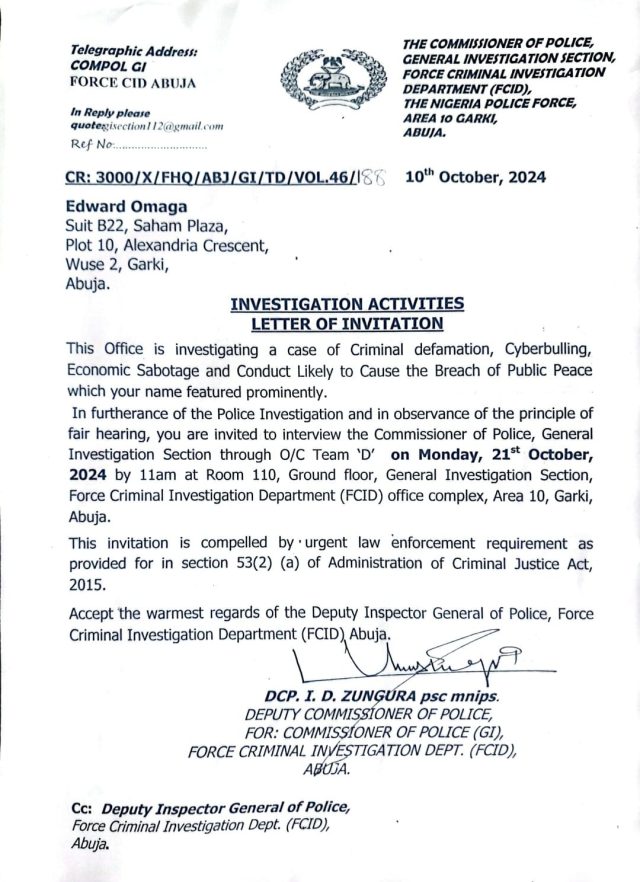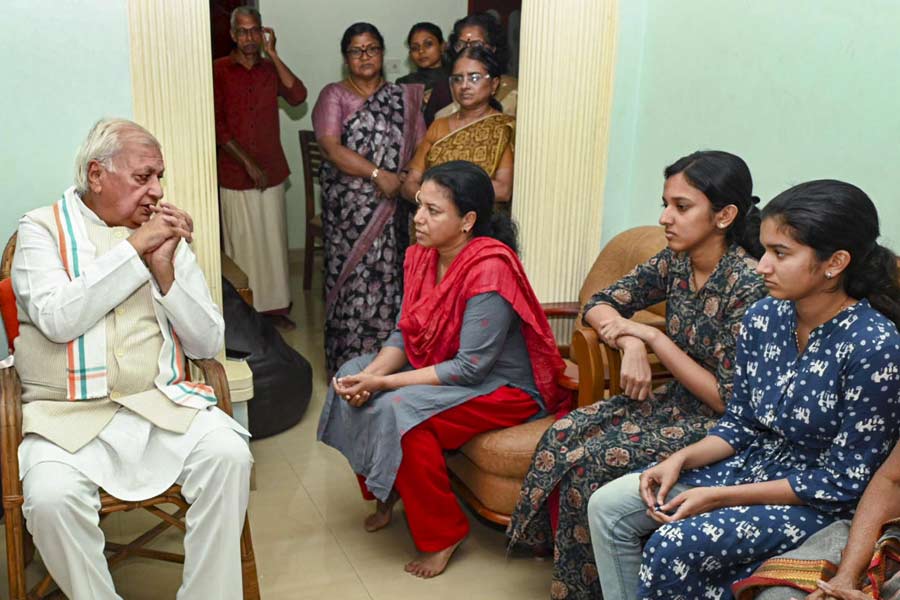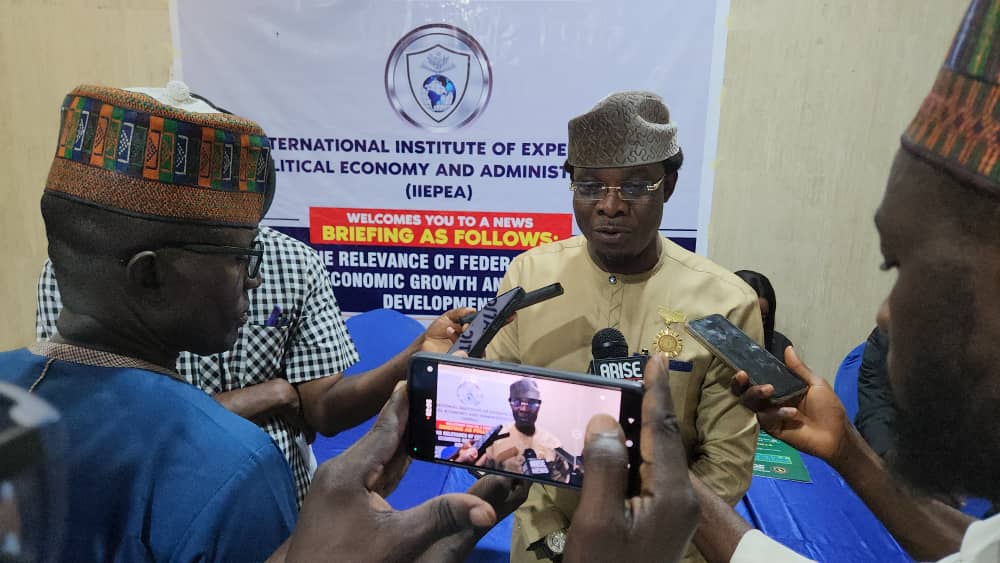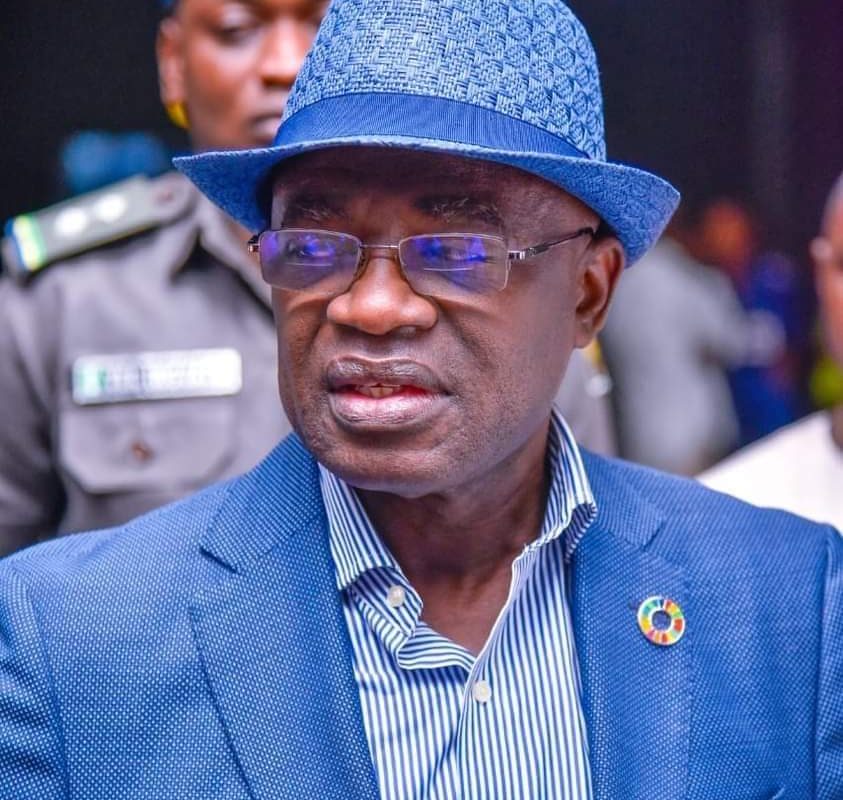
On Thursday, 3rd October 2024, the Global Integrity Crusade Network (GICN) took a bold step in the fight against corruption by presenting a Private Investigation Report to the media. This report contained serious allegations of infractions within Guaranty Trust Bank Limited (GTB). It was subsequently submitted to various national agencies, including the Nigeria Police Force, the Economic and Financial Crimes Commission (EFCC), the Central Bank of Nigeria (CBN), the Nigeria Deposit Insurance Corporation (NDIC), and others, in the hope of triggering necessary action.
The focus of this report was on alleged misconduct involving Segun Julius Agbaje, the Group CEO of Guaranty Trust Holding Company Plc (GTCO Plc), which owns GTB. As expected in a well-structured society where justice and transparency reign supreme, one would assume the authorities would prioritize investigating these weighty allegations. However, what followed next was a stark reminder of the deeply rooted challenges of fighting corruption in Nigeria.
Rather than investigate the disturbing allegations against Agbaje, certain individuals within the Nigeria Police Force chose to divert attention. Deputy Commissioner of Police (DCP) Ibrahim Zungura (08037006592) and his colleague, Barnabas Adi (08035217909), instead focused their efforts on the whistleblower behind the report. In a dramatic twist, they issued an invitation letter, not to address the contents of the investigation but to charge the whistleblower with Criminal Defamation, Cyberbullying, Economic Sabotage, and Conduct likely to Cause a Breach of Public Peace. This is nothing short of an attempt to make the hunter become the hunted.
Corruption Fighting Back
This case reflects a typical scenario where corruption fights back with vigor. In a country where those in power can easily manipulate the system to protect their interests, it is not uncommon for whistleblowers and activists to find themselves on the receiving end of threats, intimidation, and in some cases, prosecution. This is the unfortunate reality Nigeria faces in its battle against corruption.
The allegations contained in the GICN’s investigation are not trivial; they concern the integrity of one of Nigeria’s leading financial institutions and its top executive. In any functioning democracy, such allegations would prompt a serious and independent investigation. Unfortunately, the response by the authorities so far suggests a deliberate attempt to bury the truth and silence those seeking justice.
The charges of Criminal Defamation and Cyberbullying being levied against the whistleblower are nothing but smokescreens designed to intimidate and suppress free speech. These tactics reveal a broader problem in the system—one where the rule of law is often applied selectively, depending on whose interests are at stake.
Criminal Defamation as a Tool for Suppression
Criminal Defamation is a controversial legal concept that has been used by powerful individuals and institutions to shield themselves from scrutiny. In many parts of the world, including advanced democracies, criminal defamation laws are being repealed or reformed because of their potential for abuse. In Nigeria, however, they remain a potent tool for silencing dissent and whistleblowers.
The very essence of democracy is the ability of citizens to hold leaders and institutions accountable. When the police or any other law enforcement agency starts wielding defamation charges as a weapon, it undermines the principles of transparency and accountability. This is not just about the specific case against GTB; it is a broader issue of governance and justice in Nigeria. The fact that the police, whose role is to investigate crimes, are now being used to shield those accused of misconduct speaks volumes about the state of the nation.
Economic Sabotage and Conduct Likely to Cause Breach of Public Peace?
The inclusion of Economic Sabotage and Conduct likely to Cause a Breach of Public Peace in the charges is even more perplexing. It begs the question: how does exposing potential corruption within a private financial institution amount to economic sabotage? If anything, allowing corrupt practices to go unchecked is what sabotages the economy. Corruption undermines investor confidence, drains public resources, and stifles economic growth. Those who speak out against it should be seen as patriots, not saboteurs.
Similarly, the charge of Conduct likely to Cause a Breach of Public Peace appears to be a veiled attempt to criminalize activism. Peace and stability are not threatened by those who expose wrongdoing; rather, they are threatened by those who engage in corrupt practices and those who seek to cover them up.
The Need for Collective Action
This case should serve as a wake-up call for all Nigerians, particularly lawyers, anti-corruption crusaders, and lovers of justice. It is a clarion call to stand in solidarity with whistleblowers and activists who risk their lives and livelihoods to expose corruption. Nigeria cannot progress if its citizens are afraid to speak out against wrongdoing for fear of retaliation.
The law is meant to protect the weak from the excesses of the powerful, not the other way around. When the police, who are entrusted with enforcing the law, start misusing their powers to protect the corrupt, the entire system of governance is at risk. This is not the Nigeria that the founding fathers envisioned. We must all rise to the occasion and demand accountability from those in power.
The fight against corruption is not an easy one, but it is one that must be fought if Nigeria is to achieve its full potential. We cannot afford to let the powerful silence the voices of truth and justice. The police must be called to order, and the investigation into the allegations against GTB must proceed without further delay.
Conclusion: Solidarity Forever
Nigeria is not a banana republic where the rule of law can be easily trampled upon. Whistleblowers and activists play a vital role in strengthening democracy and ensuring accountability. Any attempt to breach their fundamental rights must be frontally resisted.
The case of corruption fighting back is not new, but it is one that we must continually resist. The power of the people is greater than the people in power when united. As long as there are those willing to speak out against injustice, there will always be hope for a better Nigeria.
Solidarity forever!





